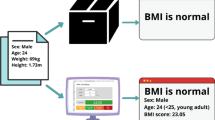Abstract
In this paper an intuitionistic fuzzy technique is proposed to evaluate macroeconomic stability index (MSI), which ensures the possibility to determine not only the quantitative, but also the qualitative level of the macroeconomic condition in the country. Intuitionistic fuzzy instruments are suitable in this regard to deal with economic problems having uncertainty. As the generalization of fuzzy sets, intuitionistic fuzzy sets are more effective to deal with vagueness and uncertainty of economic information analysis. In comparison with classical fuzzy sets, intuitionistic fuzzy sets express information by membership and non-membership functions (which convey positive and negative association) and hesitation margin. From this perspective, intuitionistic fuzzy tools come to help to transform imprecise information into knowledge and employ in multiple criteria decision-making (MCDM) problems. In the paper MSIs are obtained using intuitionistic MCDM methods. The proposed methodology for estimation of MSI of the country is carried out on the basis of statistical annuals of IMF for 2016–2020 years.
Access this chapter
Tax calculation will be finalised at checkout
Purchases are for personal use only
Similar content being viewed by others
References
Siegel, P.B., Johnson, T.G., Alwang, J.: Regional economic diversity and diversification. Growth Change 26(2), 261–284 (1995)
Maastricht Treaty 17.45. https://eur-lex.europa.eu/legal-content/EN/TXT/?uri=celex%3A11992M%2FTXT
Atanassov, K.T.: Intuitionistic fuzzy sets. Fuzzy Sets Syst. 20, 87–96 (1986)
Xu, Z.S.: Intuitionistic fuzzy aggregation operators. IEEE Trans. Fuzzy Syst. 15, 1179–1187 (2007)
Huchang, L., Xu, Z.S.: Intuitionistic fuzzy hybrid weighted aggregation operators. Int. J. Intell. Syst. 29, 971–993 (2014)
Imanov, G.J.: Fuzzy models in Economy. Springer, Berlin (2021)
Imanov, G.J., Aliyev. A.Z.: Intuitionistic fuzzy assessment of quality of life. In: 14th International Conference on Theory and Application of Fuzzy Systems and Soft Computing – ICAFS, pp. 174–182 (2020)
IMF Executive Board Concludes 2021 Article IV Consultation with Republic of Azerbaijan, June 18, 2021
https://www.oecd-ilibrary.org/sites/42efd1f2-en/index.html?itemId=/content/component/42efd1f2-en
Radhika, C., Parvathi, R.: Intuitionistic fuzzification functions. Glob. J. Pure Appl. Math. 12(2), 1211–1227 (2016)
Gong, Z.W., Lin, Y., Yao, T.: Uncertain Fuzzy Preference Relations and Their Applications, p. 210 (2012)
Gong, Z.W., Li, L.S., Zou, F.X.: Goal programming approaches to obtain the priority vectors from the intuitionistic fuzzy preference relations. Comput. Ind. Eng. 57, 1187–2113 (2009)
Xu, Z.S., Huchang, L.: Intuitionistic fuzzy analytic hierarchy process. IEEE Trans. Fuzzy Syst. 22(4) (2014). https://doi.org/10.1109/TFUZZ.2013.2272585
Huchang, L., Xu, Z.S.: Priorities of intuitionistic fuzzy preference relation based on multiplicative consistency. IEEE Trans. Fuzzy Syst. 22(6), 1669–1681 (2014)
Genç, S., Boran, F.E., Akay, D.: Some approaches on estimating criteria weights from intuitionistic fuzzy preference relations under group decision making. J. Multiple-Valued Logic Soft Comput. (2010)
Genç, S., Boran, F.E., Akay, D., Xu, Z.S.: Interval multiplicative transitivity for consistency, missing values and priority weights of interval fuzzy preference relations. Inf. Sci. 180, 4877–4891 (2010)
Boran, F.E.: An integrated intuitionistic fuzzy multi criteria decision making method for facility location selection. Math. Comput. Appl. 16(2), 487–496 (2011)
Boran, F.E., Genc, S., Akay, D.: A method for solving multi criteria intuitionistic fuzzy decision making problems. In: 1st International Fuzzy Systems Symposium, Ankara, July 2019, pp. 47–51 (2019)
Kahraman, C., Öztayşi, B., Onar, S.Ç.: An integrated intuitionistic fuzzy AHP and TOPSİS aproach to evaluation of outsource manufacturers. J. Intell. Syst. 29(1), 283–297 (2020)
Author information
Authors and Affiliations
Corresponding author
Editor information
Editors and Affiliations
Rights and permissions
Copyright information
© 2023 The Author(s), under exclusive license to Springer Nature Switzerland AG
About this chapter
Cite this chapter
Imanov, G., Aliyev, A. (2023). Intuitionistic Fuzzy Tools in Evaluation of Macroeconomic Stability. In: Shahbazova, S.N., Abbasov, A.M., Kreinovich, V., Kacprzyk, J., Batyrshin, I.Z. (eds) Recent Developments and the New Directions of Research, Foundations, and Applications. Studies in Fuzziness and Soft Computing, vol 422. Springer, Cham. https://doi.org/10.1007/978-3-031-20153-0_13
Download citation
DOI: https://doi.org/10.1007/978-3-031-20153-0_13
Published:
Publisher Name: Springer, Cham
Print ISBN: 978-3-031-20152-3
Online ISBN: 978-3-031-20153-0
eBook Packages: Intelligent Technologies and RoboticsIntelligent Technologies and Robotics (R0)




